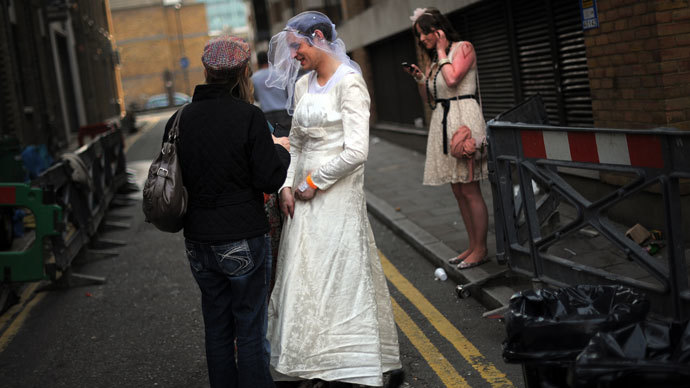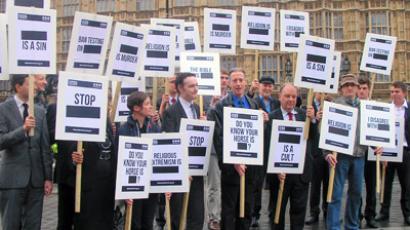Definition of confusion: UK govt to re-term ‘husband’ and ‘wife’

A man can be a “wife” and a woman can be a “husband,” the UK government has decided, overruling the Oxford English Dictionary and effectively putting an end to the traditional meanings of the words for marriage partners.
The move has been denounced as the vocabulary of “cloud cuckoo
land” and “gobbledegook” by critics who believe that
the terms ‘husband’ and ‘wife’ should have their traditional
meanings preserved.
Updated explanatory notes in The Marriage (Same Sex Couples) Bill
being considered by the government is causing it to have to
redefine the two terms, “clarifying” what it means.
“‘Husband’ here will include a man or a woman in a same sex
marriage, as well as a man married to a woman. In a similar way,
“wife” will include a woman married to another woman or a man
married to a man,” says the new footnote.
However, the traditional male-only meaning of husband and
female-only understanding of wife could return in some cases – to
“ensure that gender-specific terms such as ‘husband’ keep
their gender-specific effect.”
“The term ‘husband’ will in future legislation include a man
who is married to another man (but not a woman in a marriage with
another woman); and ‘wife’ will include a woman who is married to
another woman (but not a man married to another man) unless
specific alternative provision is made,” declares the drafted
legislation.

Critics stated that they had anticipated the legal confusion the
government would run into while trying to eliminate ‘gender
specific’ terms, which have to be introduced as the UK tries to
establish gay marriage laws, meaning marriage terms will be
‘outdated.’
“We always knew the government would tie itself in knots
trying to redefine marriage, and this shows what a ridiculous
mess they’ve created,” a spokesperson for the Coalition for
Marriage, which campaigns against the change, told the Telegraph.
“This mangling of the English language shows what happens when
politicians meddle with marriage. They’re in cloud cuckoo
land,” they said.
Debates over the new definition also sparked irritation before a
final decision was made.
“It sounds not merely like gobbledegook but the reversal of the
natural and normal meaning of words,” said Lord Tebbit in
Parliament.
Parallels have been drawn in the British media with a recent
example of Spain. The socialist government introduced gay
marriage in 2005, when it was announced that the following year
Spanish Birth certificates would read ‘Progenitor A’ and
‘Progenitor B’ instead of ‘mother’ and ‘father,’ in a move termed
‘Orwellian’ by UK officials.
The practice of gender nonspecific terms has spread far beyond
Europe: Ambiguously gendered people were given the option in 2011
of listing their gender on passport applications as ‘X’.














